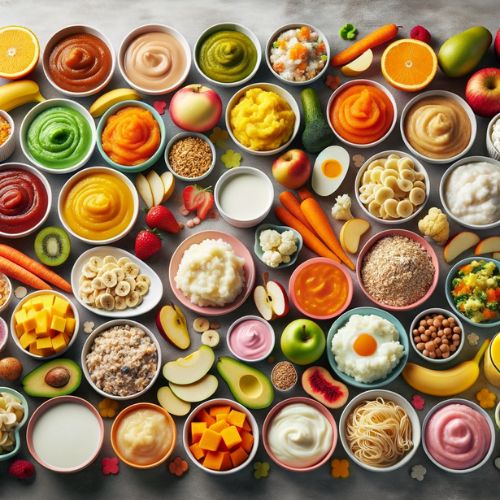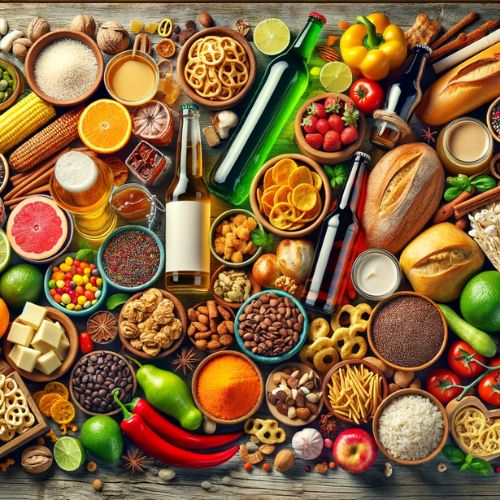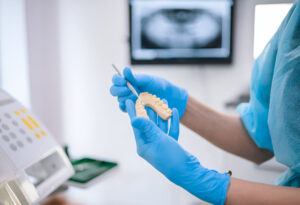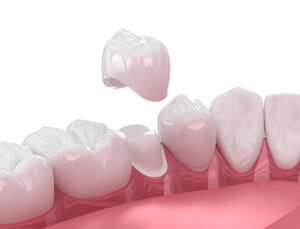Wisdom teeth removal can be a challenging experience, and a proper diet is crucial for a smooth recovery. This guide highlights 17 ideal foods to consume post-surgery and outlines foods to avoid. We’ll also discuss reintroducing solid foods, recovery care, and potential complications.
Consult with a Dental Professional Today!
Book a free consultation to find the best Dentist
Book Consultation Now17 Optimal Post-Surgery Wisdom Tooth Removal Food

1. Applesauce or Pureed Fruits: Applesauce is an excellent choice for its smooth, non-irritating texture. It provides essential vitamins without stressing the surgical site. Other pureed fruits, like peach or pear, offer similar benefits.
2. Mashed Soft Fruits: Fruits like bananas, pumpkin, and avocado are easy to consume, nutritious, and aid in recovery. They offer a pleasant, creamy texture ideal for a sensitive mouth.
3. Steamed Mashed Vegetables: Vegetables like carrots and cauliflower, when steamed and mashed, are gentle on the mouth and full of vital nutrients for healing.
4. Warm Broth or Cream Soups: Broths and soups, preferably warm and not hot, are soothing and provide essential hydration and nourishment during recovery.
5. Oatmeal, Congee, or Cream of Wheat: These soft foods are comforting, easy to swallow, and offer good nutrition without requiring much chewing.
6. Scrambled Eggs: A protein-rich choice, scrambled eggs are soft and gentle on the mouth, making them a perfect post-surgery food.
7. Smoothies: Nutrient-packed smoothies are an excellent way to consume fruits and vegetables without irritating the surgical site.
8. Cottage Cheese: Its soft texture and high protein content make cottage cheese an ideal recovery food.
9. Milk: Milk is a comfortable, soothing beverage that offers calcium and protein, essential for healing.
10. Soft Cooked Pasta or Noodles: Easily digestible and comforting, these foods can be topped with gentle sauces for a satisfying meal.
11. Mashed Fish: Soft, mashed fish like salmon provide omega-3 fatty acids, beneficial for healing and easy to eat.
12. Pudding: As a soft and sweet option, pudding is an enjoyable treat that won’t irritate your mouth.
13. Mashed Potatoes: A classic comfort food, mashed potatoes are soft and can be enriched with milk or butter for additional nutrients.
14. Mashed Cooked Lentils, Beans, or Chickpeas: These are great sources of protein and fiber, making them a nutritious choice for those recovering. and its most asked question that “can i eat lentils after wisdom teeth removal”, so the answer is yes.
15. Yogurt: Yogurt is rich in probiotics and calcium, offering a smooth texture that’s easy on the mouth.
16. Ice Cream or Frozen Yogurt: A soothing treat, their cold nature can help reduce swelling.
17. Tofu: Soft tofu is an excellent source of protein and is gentle enough for a recovering mouth.
13 Foods to Avoid After Wisdom Teeth Removal

1. Carbonated Beverages: Avoid carbonated drinks like sodas and sparkling water. The fizz can irritate the surgical site, leading to discomfort and potentially delaying the healing process.
2. Alcohol: Alcohol can interfere with the healing process and may react adversely with prescribed medications. It’s best to avoid alcoholic beverages to ensure a smooth recovery.
3. Spicy Foods: Spicy foods can cause significant irritation and discomfort at the extraction site. They may also lead to inflammation, hindering the healing process.
4. Acidic Foods: Citrus fruits and tomatoes can irritate the mouth and extraction site. Their acidity can cause pain and delay healing, making it wise to avoid them initially.
5. Hot Beverages: Beverages like coffee and tea should be consumed lukewarm. Hot drinks can dissolve the blood clot that forms for healing, leading to complications like dry socket.
6. Nuts: Nuts are hard and can require significant chewing effort, which can disturb the healing sockets. Their small pieces might also get lodged in the extraction sites, causing discomfort.
7. Seeds: Similar to nuts, seeds can get stuck in the surgical sites and cause irritation or infection. It’s best to avoid foods with small seeds, like strawberries or seeded bread.
8. Grains Small grains like rice or quinoa can easily become trapped in the extraction sites. This can lead to discomfort and potential infection, hindering the healing process.
9. Pretzels: Pretzels, with their hard and crunchy texture, can be abrasive to the sensitive surgical areas. It’s wise to avoid such snacks until complete healing has occurred.
10. Chips: Chips pose a similar risk as pretzels. Their sharp edges and hard texture can irritate or damage the extraction sites, leading to discomfort and a risk of infection.
11. Crusty Bread: The hard crusts of bread can scrape against and irritate the healing tissues. Soft, non-crusty bread options are a safer choice during the initial recovery period.
12. Chewy Candy: Chewy or sticky candies can cling to and disturb the healing gums. They can also pull at the stitches if any were placed, increasing the risk of complications.
13. Popcorn: Popcorn kernels are notorious for getting stuck between teeth and in gum pockets, which can be particularly problematic in healing extraction sites, leading to irritation and possible infection.
When is it Appropriate to Start Eating Solid Foods Again?
When you begin to experience less pain, consider that it’s the right time to visit the idea of introducing foods that are gentle on your system but require minimal chewing. Ideal options include creamy avocado, ripe bananas, fluffy scrambled eggs, and smooth mashed potatoes. Typically, you’ll stick to such soft and semi-soft foods for several days. Recovery varies, with many feeling better in 3 to 5 days. Use your comfort level as a gauge: eat what feels right and gradually return to your regular diet as the pain diminishes.
Recovery and Self-Care
Proper care after wisdom teeth removal is crucial for a swift and smooth recovery. Here are some key steps to follow:
- Rest: Give your body time to heal by avoiding strenuous activities for a few days after the surgery.
- Follow Dentist’s Instructions: Adhere to any specific instructions provided by your dentist, including taking prescribed medications and attending follow-up appointments.
- Maintain Oral Hygiene: Keep your mouth clean to prevent infection. Gently rinse with salt water or a prescribed oral rinse, but avoid vigorous rinsing or spitting for the first few days.
- Use Ice Packs: Apply ice packs to the outside of your face in the area of the extraction to reduce swelling and bruising. Do this for about 15-20 minutes at a time during the first 48 hours post-surgery.
- Eat Nutritious Foods: A nutritious diet aids in healing. Consume plenty of fluids and the recommended soft foods to maintain your strength and health.
- Avoid Smoking and Straws: Smoking can delay healing and increase the risk of complications. Similarly, using straws can dislodge the blood clot at the surgical site.
Complications After Removal
Be aware of potential complications following wisdom teeth removal:
- Dry Socket: This occurs when the blood clot at the extraction site is dislodged, exposing bone and nerves. Symptoms include severe pain, bad breath, and an unpleasant taste in the mouth. It typically develops a few days after surgery.
- Infection: Signs of infection include persistent pain, swelling, redness, and discharge. Fever may also be present.
- Bleeding: Some bleeding is normal, but excessive or prolonged bleeding should be addressed by a dentist.
- Swelling and Bruising: While common, excessive swelling or bruising should be monitored.
Got Wisdom Teeth Concerns? Najmi Dental is Your Answer!
Are you facing the prospect of wisdom teeth removal and feeling apprehensive? Turn to Najmi Dental – your trusted dentist experts in Fairfield, Australia for all wisdom teeth procedures. With state-of-the-art technology and a compassionate approach, we ensure your journey, from consultation to recovery, is smooth and stress-free. Ready for a hassle-free wisdom teeth removal experience? Najmi Dental is just a call away!
Learn the truth about how long do root canal last


